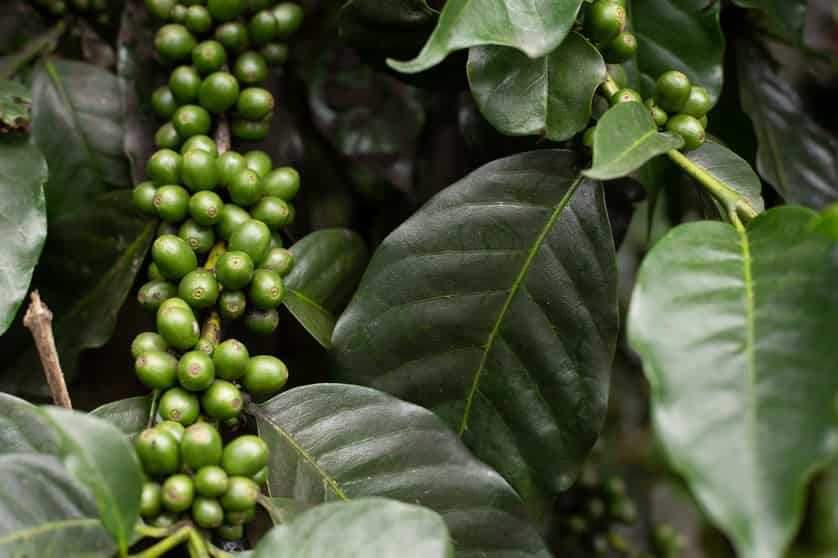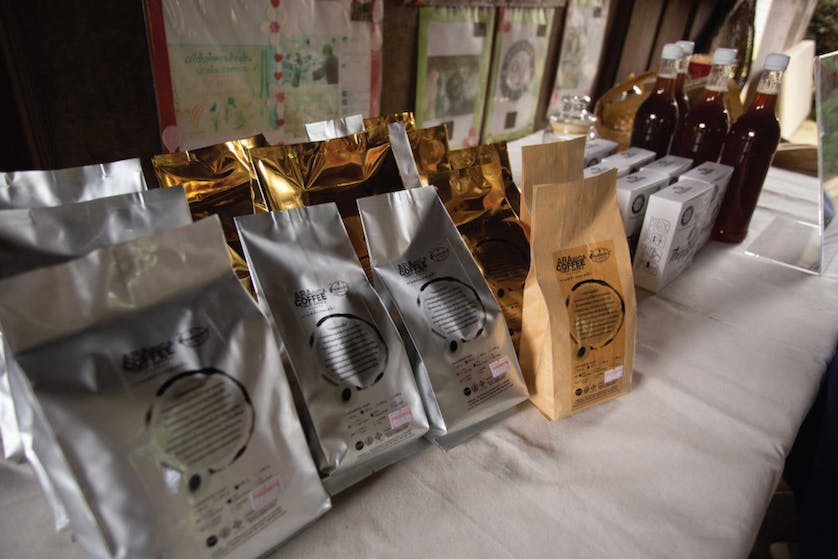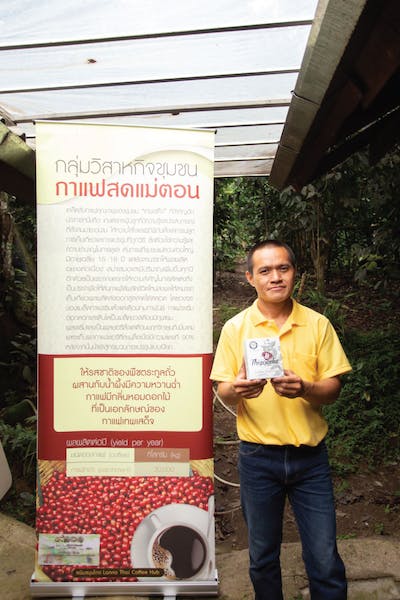“Our vision is for Chiang Mai to be a coffee destination,” said Surapon Plumjai, the director of Industrial Promotion Center Region 1, explaining his vision of having people from all over the world one day fly to Chiang Mai for our coffee. Overall, Thailand has about 260,000 rai of coffee plantations, 78,000 of which are in the northern region, with about 20,000 rai in Chiang Mai. “Each year, around 3,800 tonnes of coffee are produced in Chiang Mai, and with over a thousand coffee shops across the province, coffee generates over two billion baht to Chiang Mai economy annually,” said Surapon.

Since 2017, the Industrial Promotion Center Region 1 has officially stepped into the Chiang Mai coffee industry, developing a long term strategic project that aims to enhance the whole supply chain. “This year we have set a budget of 25 million baht to kick start the project,” said Surapon. Coffee Camp, one of the planned activities, was held in July, when they invited the media to visit two different coffee plantations, the famous village of Mae Kampong and Thepsadej community enterprise whose coffee has been certified by Geographical Indication Thailand.

Mae Kampong, a small village in Mae On which is now a well-known tourist destination, once mainly relied on tea as their main income. But as fermented tea chewing became less popular, the villagers saw their income dwindling. So back in the 2000s, when Thiramet Khachonphatthaphirom was the village headman, he sought alternative solutions for the villagers to survive. “With help from the Royal Project, coffee stepped in as a secondary income for the villagers, with tourism as a supplement,” said Thiramet, who says that coffee has become an important income stream for the community. Similar with tea in the area, coffee is planted in the forest, ensuring the sustainability of the local ecology. “Self-sustainment is our goal, so we aim to be able to produce, process and merchandise within the village,” said Thiramet who has set up two coffee roasters and a shop in the village selling Mae Kampong Coffee Beans to travellers. The village has now been producing about five tonnes of coffee per year, with part of the income going towards the village fund. “The fund is used on new born babies, as a gesture of welcome from the villagers, and goes towards funerals, education, medical care and other needs of villagers.”


On a larger scale, for the past 18 years, Wawee Coffee has been one of the most famous coffee brands to have come out of the north. With over 50 contract farmers supplying the brand across the region, this coffee giant continues to expand. “For the past several years we have been focusing our efforts at the top of the supply stream, making sure our sources produce quality coffee. So, it’s about time to expand our reach in the market,” said Kraisit Foosuwan, the board member of Wawee Coffee, who revealed a plan to penetrate the market in Bangkok with more than 30 branches to open within the next year.
The Industrial Promotion Center Region 1 continues its efforts to push for Chiang Mai’s coffee to be world renown and has launched training and knowledge sharing for over 300 farmers and entrepreneurs across the supply chain to create a cluster where they all move Chiang Mai together as a coffee destination.


